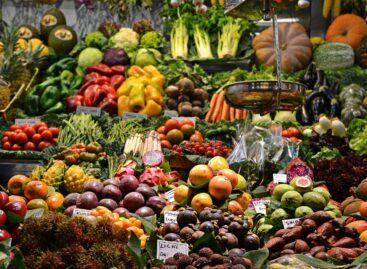New rules in agriculture: the producer protection package is coming – what does this mean in practice?
On January 1, 2025, the agricultural sector’s new legislative package, the producer protection package, entered into force, aiming to protect agricultural producers and make contractual relations between market participants more predictable. The new regulation affects the fruit and vegetable, pork and poultry sectors, and may later be extended to other areas. The details were discussed by the sector’s leaders at a roundtable discussion held at the Portfolio Agrárium 2025 Conference – writes the Agrárszektor.
Contractual stability in times of crisis
 One of the most important innovations of the legislative package is that it provides the opportunity to establish voluntary producer cooperation between producers and integrator companies. The role of contractual relations is particularly valued in times of economic uncertainty – pointed out Tamás Andréka, State Secretary of the Ministry of Agriculture. In such cases, it is common for actors to lack complete information, which can lead to financial losses.
One of the most important innovations of the legislative package is that it provides the opportunity to establish voluntary producer cooperation between producers and integrator companies. The role of contractual relations is particularly valued in times of economic uncertainty – pointed out Tamás Andréka, State Secretary of the Ministry of Agriculture. In such cases, it is common for actors to lack complete information, which can lead to financial losses.
Risk sharing: becoming a mandatory element
The legislation will make it mandatory to share production and performance risks in contracts from 1 July 2024, first in the pork, poultry and fruit and vegetable sectors. From 2025, cooperation that does not have adequate documentation will be subject to sanctions.
Additional measures:
Direct sanctioning of late payment of more than 30 days,
Introduction of contract templates and risk sharing elements,
Possibility of banning from occupation if the producer does not receive his fair compensation.
Sensitivity of the fruit and vegetable sector
Ferenc Apáti, President of FruitVeB, emphasized that the fruit and vegetable sector is particularly sensitive to weather and also bears greater risk due to the perishable products. He welcomed the fact that the detailed rules could be developed by inter-professional organisations, but warned that no single general regulation could cover the entire sector. A different approach may be needed for each product group.
Apáti highlighted that the 30-day payment deadline could not be applied in all cases, as, for example, sales did not occur evenly due to seasonal harvesting. Tamás Andréka agreed with this and called for a gradual, flexible development of the regulation.
Related news
Related news
The Store of the Future opens again at the SIRHA Budapest exhibition! (Part 3)
🎧 Hallgasd a cikket: Lejátszás Szünet Folytatás Leállítás Nyelv: Auto…
Read more >Amikor a megszámlálhatatlan megszámlálhatóvá válik
🎧 Hallgasd a cikket: Lejátszás Szünet Folytatás Leállítás Nyelv: Auto…
Read more >New country director at the helm of JYSK Hungary
🎧 Hallgasd a cikket: Lejátszás Szünet Folytatás Leállítás Nyelv: Auto…
Read more >









